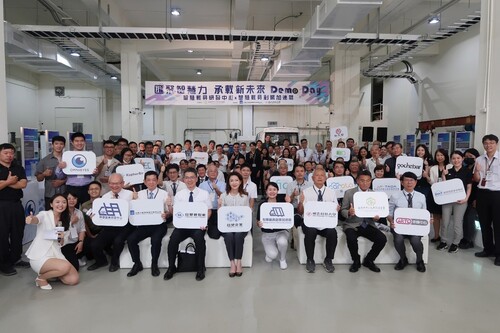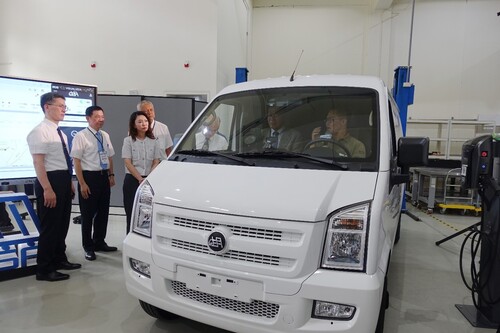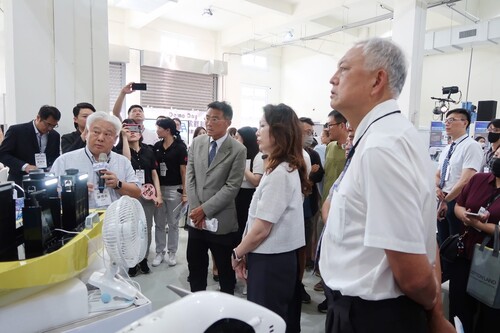MCUT Intelligent Vehicle Startup Accelerator Demo Day: Showcasing Startup Innovation and Unveiling New Horizons in Electric Vehicle Development



In response to the global trend toward net-zero carbon emissions, electric vehicles are emerging as the new trend in future mobility. Since 2022, Ming Chi University of Technology has partnered with Formosa Plastics Transport Corporation to establish the "Intelligent Vehicle Startup Accelerator." This initiative fosters the collaboration between large corporations and small-to-medium enterprises to develop domestically produced commercial electric vehicles. In early July, a "Demo Day" event was held at MCUT's Intelligent Vehicles R&D Center, showcasing a great variety of innovative outcomes and technological advancements in commercial electric vehicles. The event gathered prominent figures from industry, government, academia, and research sectors. Guan-Chih Lee, Director-General of the Small and Medium Enterprise and Startup Administration, Ministry of Economic Affairs, also attended the event, marking his first public appearance in the industry since taking office. His participation underscores the importance of the event.
In his speech, Yu-Chih Cheng, Vice President of Formosa Plastics Transport Corporation, emphasized the company's strategic use of its extensive resources and market influence to integrate manufacturing, R&D, supply chain management, and marketing. By partnering with multiple startups, the company has fostered collaboration across the electric vehicle supply chain. The domestically produced commercial electric vehicles showcased at the event not only demonstrate the significant achievements of the Intelligent Vehicle Startup Accelerator since its inception but also prove that Taiwan has the technical capability for full-scale development of commercial electric vehicles.
Professor Thu-Hua Liu, President of Ming Chi University of Technology, highlighted the pivotal role of the Intelligent Vehicles R&D Center in developing domestically produced commercial electric vehicles. As a university positioned as an "Industry-Academia R&D-Oriented University of Technology," MCUT actively channels its research capabilities into practical applications within industries. The domestically produced commercial electric vehicles are a tangible outcome of team members integrating theoretical knowledge with practical expertise. By developing and applying core technologies, the center has provided valuable insights and innovative solutions, elevating the performance and reliability of commercial electric vehicles. Looking forward, the university aims to deepen industry collaboration, foster the application and development of innovative technologies, and further enhance the capabilities of the intelligent vehicle industry.
At the event, the Intelligent Vehicles R&D Center showcased two 2.5-ton commercial electric vehicles it developed. Additionally, multiple startups nurtured by the accelerator presented key subsystems, including vehicle control units (VCUs), motors and thermal management systems, drivers, and batteries. These were complemented by innovative features such as internet of vehicles, intelligent co-pilot systems, and intelligent key authorization.
The key subsystem providers come from fields including electric vehicles, smart mobility, and green energy. Their contributions showcased the accelerator’s robust capabilities in fostering startups. By creating a platform for industry exchange and collaboration, the event underscored the commitment to advancing smart mobility and green energy industries. The innovative technologies presented are expected to continue driving industry progress, contributing to global green energy and carbon reduction goals, and creating new opportunities for the future.
Traditional Chinese Edition: 明志科大智慧載具創業加速器Demo Day 匯聚新創企業技術力,展現電動車發展新前景
Thank you for providing the English translation in the Language Center!
This article is simultaneously published in the 11th edition of the SDGs E-paper.






